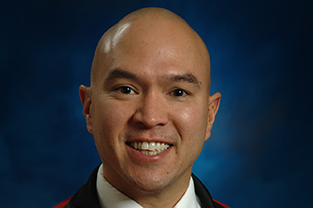March 2, 2017
SVSU partners with United Way of Midland County to research food needs
 Saginaw Valley State University is providing expertise to a community-oriented research project aimed at improving access to food for low-income households.
Saginaw Valley State University is providing expertise to a community-oriented research project aimed at improving access to food for low-income households.
In partnership with the United Way of Midland County, SVSU began a project in late 2015 to evaluate emergency food assistance in Midland County.
“They weren't seeing a whole lot of people coming through the doors, so they were concerned that there was a disparity between the need and people who were actually coming to get some of these services,” said Brian Thomas, SVSU associate professor of sociology.
This led to United Way planting the seed that would become Midland County Hunger Connections, a collaborative project between several nonprofits and SVSU to raise awareness and reduce barriers for those who might fall into the classification of “food insecure.”
According to the United State Department of Agriculture (USDA), food insecurity “is a household-level economic and social condition of limited or uncertain access to adequate food.”
Many food-insecure households have an income above the U.S. poverty level and struggle to meet the basic needs of their family due to the cost of living.
United Way distributed a survey early in 2016 to gauge the food security needs of the community and how access to such things as food banks, backpack programs and school programs can be improved.
“We had these initial meetings between United Way, and there was a discussion about what would be the best way for SVSU to provide expertise,” Thomas explained. “We decided that we would provide some input as to the survey development and that we would assist with survey analysis.
“There are many families with people who are working low-wage or perhaps seasonal jobs and, even though they are employed, they don't have reliable access to healthy food. Many of these families met USDA definitions of food insecure.”
Though the survey and analysis portion of this community project has concluded, there is still work to be done. Midland County Hunger Connections will continue to educate families and individuals on how to access available food resources.
Thomas will remain involved with the project moving forward as he currently sits on a subcommittee within the group which will allow him to play an advisory role.
